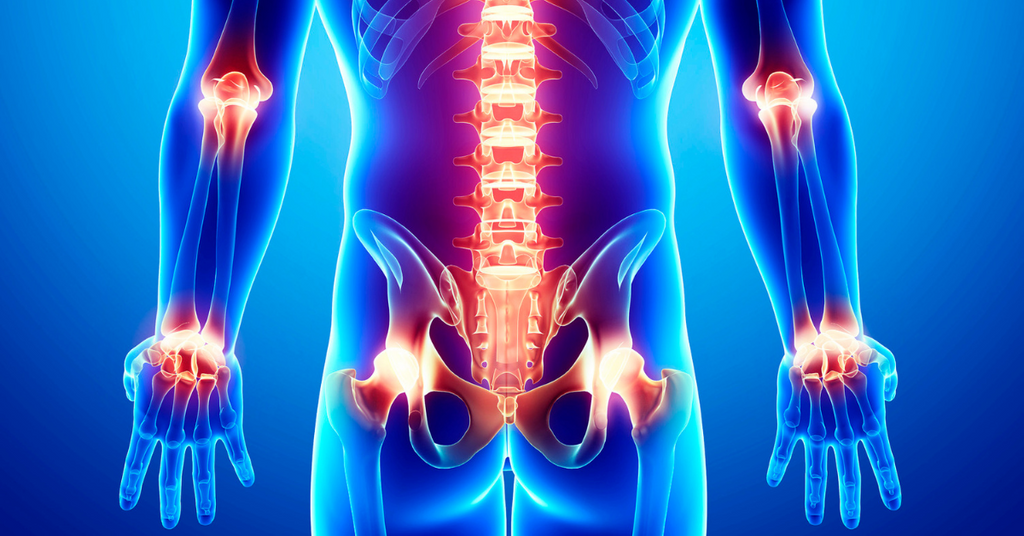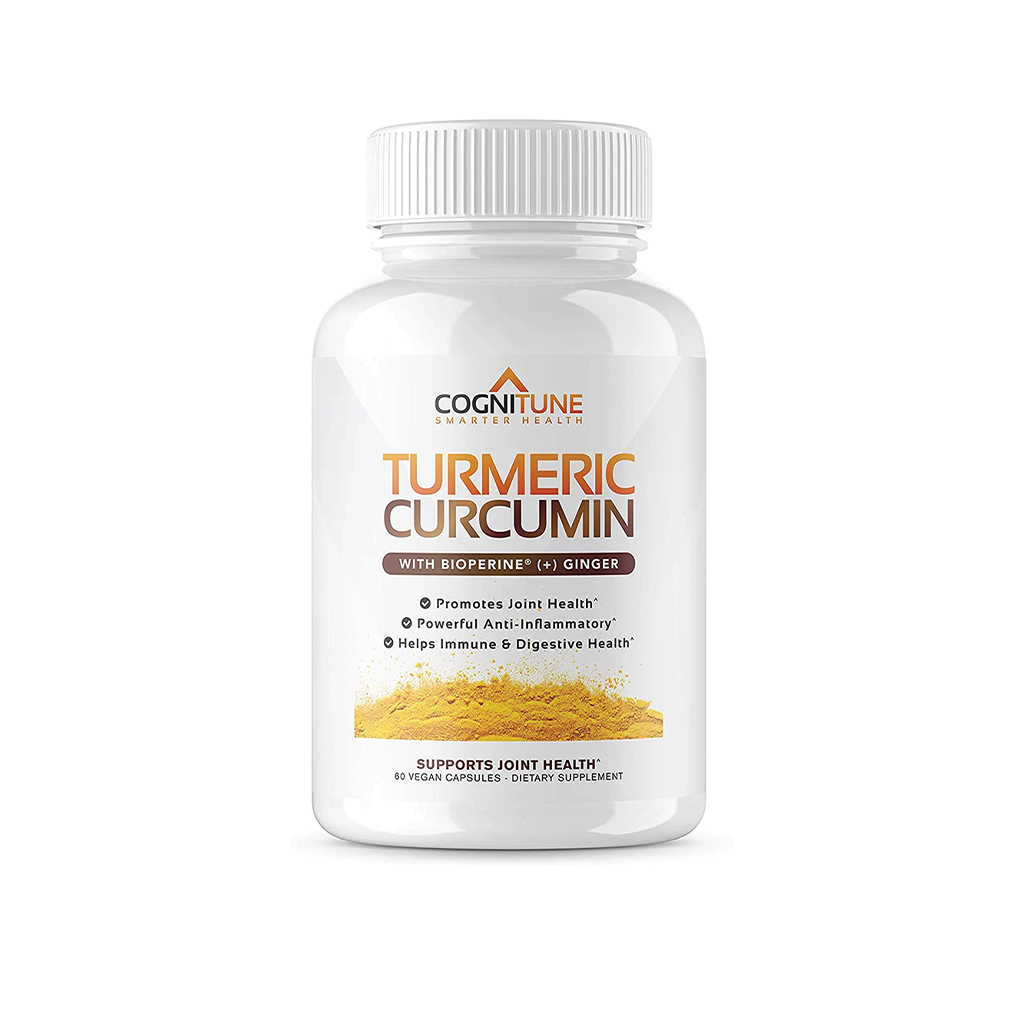Discover the Power of Turmeric and Ginger- Anti-Inflammatory Superheroes

Have you ever had a swollen ankle or a cut that turned red and puffy? That’s inflammation at work! Inflammation is a natural response of our body’s immune system to protect and heal us from injury, infection, or stress. But did you know that inflammation can also cause harm if it becomes chronic and systemic?
Acute inflammation typically lasts for a few days to weeks. It is the body’s immediate reaction to an injury or infection, and its purpose is to eliminate the source of harm and promote healing. Acute inflammation usually presents with classic signs such as redness, swelling, heat, and pain at the site of injury or infection. Examples of acute inflammation include a sprained ankle, a sore throat, or a cut on the skin.
On the other hand, chronic inflammation is a long-term response that persists for weeks, months, or even years. Unlike acute inflammation, which is a protective response, chronic inflammation can be detrimental to the body. It can result from unresolved acute inflammation, ongoing exposure to harmful substances, or an autoimmune condition where the immune system mistakenly attacks healthy cells and tissues. Chronic inflammation can occur silently and may not have obvious signs like acute inflammation, but it can have serious consequences for overall health.
One of the key differences between acute and chronic inflammation is the duration. Acute inflammation is typically short-lived and resolves once the underlying cause is addressed, while chronic inflammation persists over a prolonged period of time. Chronic inflammation can lead to tissue damage, scarring, and dysfunction of affected organs or tissues, which can result in chronic diseases such as arthritis, cardiovascular disease, diabetes, and even cancer.
Click Here to Check Price and Purchase our Recommended Turmeric and Ginger Supplement on Amazon
Turmeric Curcumin’s Anti-Inflammatory Effect

Now that we have talked about what inflammation is and how it affects healing in our body, wouldn’t it be nice if we could find a natural aid for chronic inflammation?
Look no further than your kitchen spice cabinet, because turmeric curcumin is here to save the day! You may have heard of this golden spice, but did you know that it’s not just a flavorful addition to your favorite curry recipe? Turmeric curcumin has powerful anti-inflammatory properties that can do wonders for your body. Let’s dive in and learn more about this super spice!
First things first, what exactly is turmeric curcumin? Turmeric is a bright yellow spice harvested from the root of the Curcuma longa plant, native to South Asia. It has been used for centuries in traditional Ayurvedic and Chinese medicine for its numerous health benefits. Curcumin is the main active compound found in turmeric, responsible for its vibrant color and potent anti-inflammatory properties.
So, what’s the big deal about anti-inflammatory properties? Chronic inflammation can be harmful to your body and has been linked to a variety of health issues, such as heart disease, diabetes, arthritis, and even certain types of cancer.
This is where turmeric curcumin comes to the rescue! Curcumin has been shown to have powerful anti-inflammatory effects that can help reduce inflammation in the body.
When inflammation occurs in the body, certain enzymes and proteins are activated, leading to the production of cytokines (pro-inflammatory molecules). These cytokines then trigger an immune response resulting in inflammation, pain, and swelling. Curcumin works by inhibiting the activity of these pro-inflammatory enzymes and proteins, thereby reducing the production of cytokines and suppressing inflammation.
It also helps to modulate the activity of transcription factors, which are proteins that regulate gene expression related to inflammation. One of the main ways curcumin reduces inflammation is by blocking the NF-kB (nuclear factor-kappa B) pathway, which is a major inflammatory signaling pathway in the body. NF-kB plays a significant role in triggering the production of inflammatory cytokines, and curcumin inhibits the activation of NF-kB, thus reducing inflammation.
Click Here to Check Price and Purchase our Recommended Turmeric and Ginger Supplement on Amazon
Ginger and its Role as an Anti-Inflammatory Food

Ginger, a widely used spice in culinary applications, has been recognized for its medicinal properties in traditional medicine for centuries. One of the active constituents of ginger responsible for its potent anti-inflammatory effects is gingerol.
Scientific research has shown that gingerol possesses robust antioxidant and anti-inflammatory properties. By scavenging harmful free radicals in the body, gingerol helps to counteract cell damage and mitigate inflammation. Additionally, gingerol inhibits the production of inflammatory chemicals in the body, thereby reducing inflammation and alleviating pain.
In a study conducted in 2010, researchers discovered that ginger, whether raw or heated, was a successful pain reliever for muscle pain caused by exercise-induced injuries in humans. Both types of ginger were equally helpful in reducing pain and inflammation in the muscles. According to another study, high doses of ginger taken for a period of four weeks may have the potential to alleviate joint pain associated with rheumatoid arthritis and reduce inflammation. This study indicates that ginger may have a beneficial effect on joint pain and inflammation in individuals with rheumatoid arthritis when consumed at higher doses for a specific duration of time.
Moreover, ginger has been found to exhibit immune-boosting properties, which further contribute to its anti-inflammatory effects. A well-functioning immune system plays a pivotal role in combating inflammation and safeguarding the body against various diseases. Thus, incorporating ginger into one’s diet may have beneficial effects in reducing inflammation and promoting overall health. Overall, ginger’s diverse properties make it a promising natural remedy for inflammation and its associated health concerns.
Click Here to Check Price and Purchase our Recommended Turmeric and Ginger Supplement on Amazon
Synergy Against Inflammation

One study presents molecular evidence that suggests a synergistic approach using ginger and turmeric can effectively reduce proinflammatory mediators that may be partially attributed to the increased activation of Nrf2 and interactions among the bioactive compounds found in these two natural substances.
There has also been indication that combined curcumin and ginger may contribute to wound healing by increasing type I collagen and decreasing MMP-9 in the skin.
Combination of ginger and turmeric has also been shown to possess potential antihypertensive benefits due to their antioxidant activities.
Together, natural extracts from turmeric, ginger, and garlic may work synergistically to exhibit potent anti-cancer activity, making them potential candidates for further research and development of novel anti-cancer therapies.
Click Here to Check Price and Purchase our Recommended Turmeric and Ginger Supplement on Amazon
Increasing Bioavailability

Curcumin has low bioavailability due to its poor solubility in water and its rapid metabolism and elimination from the body. However, when curcumin is taken together with BioPerine, the bioavailability of curcumin is enhanced.
BioPerine, also known as piperine, is a compound extracted from black pepper (Piper nigrum) that has been shown to increase the bioavailability of curcumin. Bioavailability refers to the amount of a substance that is absorbed and available for use in the body.
BioPerine inhibits certain enzymes in the liver and intestines that are responsible for the metabolism and elimination of curcumin. This results in increased levels of curcumin in the bloodstream and a longer duration of its action in the body.
Enhanced absorption: BioPerine increases the absorption of curcumin from the gastrointestinal tract by increasing the permeability of the intestinal lining, allowing more curcumin to be absorbed into the bloodstream.
Increased bioavailability: BioPerine increases the bioavailability of curcumin by enhancing its solubility in water and improving its stability in the acidic environment of the stomach.
P-glycoprotein inhibition: BioPerine inhibits P-glycoprotein, a protein that pumps drugs and other foreign substances out of cells, including curcumin. By inhibiting P-glycoprotein, BioPerine helps to increase the concentration of curcumin inside cells, enhancing its therapeutic effects.
Click Here to Check Price and Purchase our Recommended Turmeric and Ginger Supplement on Amazon
Conclusion
Inflammation is a natural response of the body’s immune system to protect and heal from injury, infection, or stress. However, chronic inflammation can be harmful and lead to various health issues. Turmeric curcumin and ginger are two natural remedies that have been shown to possess potent anti-inflammatory properties. When used together, ginger and turmeric curcumin may have a synergistic effect in reducing inflammation. Incorporating these natural remedies into one’s diet may have beneficial effects in reducing inflammation and promoting overall health.
So, next time you reach for the spices in your kitchen, remember that turmeric curcumin and ginger may offer more than just flavor – they could help to fight inflammation and promote better health. Consider incorporating these natural remedies into your diet as part of a holistic approach to managing inflammation and supporting your overall well-being.
Click Here to Check Price and Purchase our Recommended Turmeric and Ginger Supplement on Amazon

